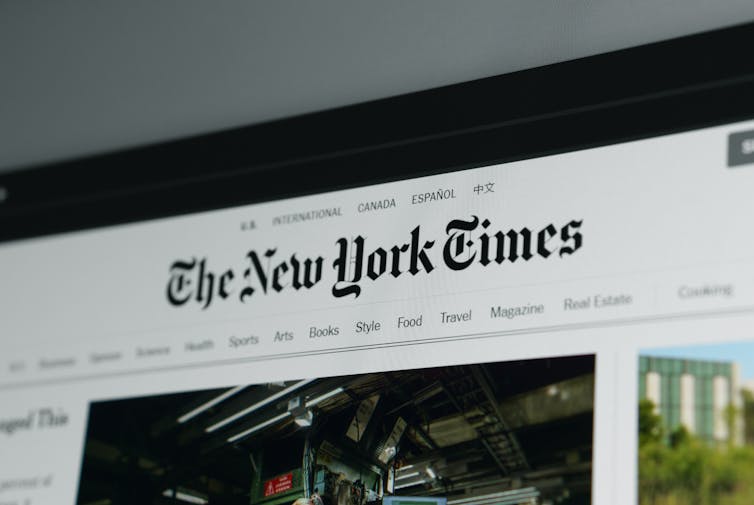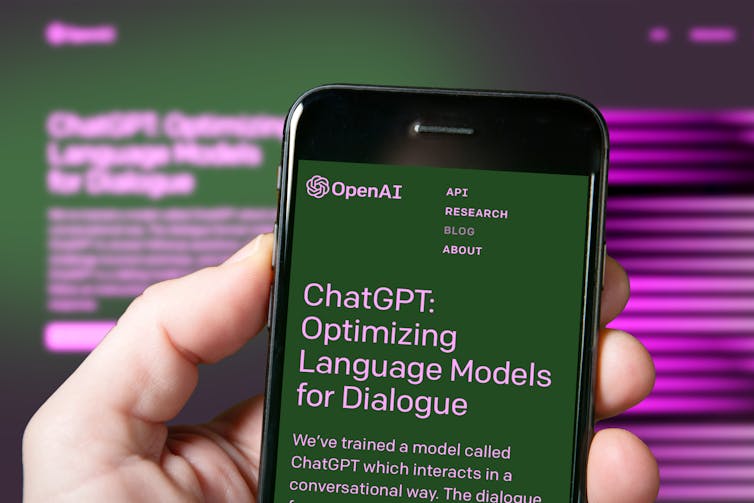Professor Matthew Bennett and Dr Sally Reynolds write for The Conversation about their research at White Sands National Park, where they have found the earliest evidence of prehistoric transport…
Fossil footprints reveal what may be the oldest known handcarts – new research
Matthew Robert Bennett, Bournemouth University and Sally Christine Reynolds, Bournemouth University
If you’re a parent you’ve probably tried, at some point, to navigate the supermarket with a trolley, and at least one child in tow. But our new study suggests there was an ancient equivalent, dating to 22,000 years ago. This handcart, without wheels, was used before wheeled vehicles were invented around 5,000 years ago in the Middle East.
Recently our research team discovered some remarkable fossil traces which might give a hint. These traces were found alongside some of the oldest known human footprints in the Americas at a place called White Sands in New Mexico.
In the last few years, several footprint discoveries at this site have begun to rewrite early American history – pushing back the arrival of the first people to enter this land by 8,000 years.
There is some controversy around the age (23,000 years old) of these footprints, with some researchers unhappy with our dating methods. But they provide a remarkable picture of past life on the margins of a large wetland at the end of the last ice age.
The footprints tell stories, written in mud, of how people lived, hunted and survived in this land. Footprints connect people to the past in a way that a stone tool or archaeological artefact never can. Traditional archaeology is based on the discovery of stone tools. Most people today have never made a stone tool but almost all of us will have left a footprint at some time, even if it is only on the floor of the bathroom.
Today, modern shopping trolleys can be found rusting in canals, rivers or abandoned in shrubbery. But ancient versions would have probably been of wood and simply rotted away. We know that transport technology must have existed.
Everyone has stuff to transport, but we have no record of it until written histories. At White Sands, we found drag-marks made by the ends of wooden poles while excavating for fossil footprints. Sometimes these appear as just one trace, while at other times they occur as two parallel, equidistant traces.
A pole or poles used in this fashion is called a travois. These drag-marks are preserved in dried mud that was buried by sediment and revealed by a combination of erosion and excavation. The drag-marks extend for dozens of metres before disappearing beneath overlying sediment. They clip barefoot human tracks along their length, suggesting the user dragged the travois over their own footprints as they went along.
To help interpret these features, we conducted a series of tests on mud flats both in Dorset, UK, and on the coast of Maine, US. We used different combinations of poles to recreate simple, hand-pulled travois.
In our experiments the pole-ends dragged along the mud truncate footprints in the same way as the fossil example in New Mexico. These features in the fossil examples were also always associated with lot of other human footprints travelling in a similar direction, many of which, judging by their size, were made by children.
We believe the footprints and drag-marks tell a story of the movement of resources at the edge of this former wetland. Adults pulled the simple, probably improvised travois, while a group of children tagged along to the side and behind.
The research team has benefited from the insight of the Indigenous peoples we work with at White Sands, and they interpret the marks in this way as well. We cannot discount that some of the marks may be made by dragging firewood, but this does not fit all the cases we found.
Travois are known from historical documents and accounts of Indigenous peoples and their traditions. They were more commonly associated with dogs or horses, but they were pulled by humans in our tests.
As such they represent early examples of the handcart or wheelbarrow, but without the wheel. The earliest record of a wheeled vehicle dates from Mesopotamia (modern day Iraq), in 2,500BC. We think the travois were probably improvised from tent poles, firewood and spears when the need arose.
Maybe they were created to help move camp, or more likely, transport meat from a hunting-site. In the latter context the analogy with the shopping trolley comes to the fore, as does the pained expression of the adults faces as they quest for resources with a gaggle of children in tow.![]()
Matthew Robert Bennett, Professor of Environmental and Geographical Sciences, Bournemouth University and Sally Christine Reynolds, Associate Professor in Hominin Palaeoecology, Bournemouth University
This article is republished from The Conversation under a Creative Commons license. Read the original article.















 BU attendance at third annual GCPHR meeting in June
BU attendance at third annual GCPHR meeting in June Interactive Tangible and Intangible Heritage Applications – BU student work featured in new book chapter
Interactive Tangible and Intangible Heritage Applications – BU student work featured in new book chapter Second NIHR MIHERC meeting in Bournemouth this week
Second NIHR MIHERC meeting in Bournemouth this week MSCA Postdoctoral Fellowships 2025 Call
MSCA Postdoctoral Fellowships 2025 Call ERC Advanced Grant 2025 Webinar
ERC Advanced Grant 2025 Webinar Horizon Europe Work Programme 2025 Published
Horizon Europe Work Programme 2025 Published Horizon Europe 2025 Work Programme pre-Published
Horizon Europe 2025 Work Programme pre-Published Update on UKRO services
Update on UKRO services European research project exploring use of ‘virtual twins’ to better manage metabolic associated fatty liver disease
European research project exploring use of ‘virtual twins’ to better manage metabolic associated fatty liver disease